Aunt Edna lived with us for several years while I was growing up. She was a forensics enthusiast before being a forensics enthusiast was cool, which it never was. While most kids had hopscotch squares in front of their houses, we had chalk outlines outside ours. The figures’ ghostly limbs were bent in all manners of unlikely angles, probably owing more to the fact of my aunt’s inability to draw than the diabolical nature of a given fictitious crime. Friends who came over were routinely subjected to lineups, and the doorknobs of our home were blackened with repeated fingerprint dustings. Photos in our family albums were interspersed with gruesome case study photos, details of gunshot wounds, and police sketches. Forensics became a way of life for my family, and after a time it became difficult to separate Aunt Edna’s hobby from our daily routines.
Most of the time Aunt Edna could be found measuring things: the arc of the door swing, the amount of milk left in the carton, which spectra tended to see more use in my crayon collection. Anything and everything was subject to quantification, because to her it all meant something, and that was especially important because she had lost so much. Dad tolerated her because it kept me occupied, and he even helped her to set up a lab in the basement in the area he’d always meant to set up his wet bar. Mom tolerated her because my Aunt Edna was her big sister, senior by nearly twenty years. Mom felt beholden to her because she didn’t really have anything else now but her forensics, and after her house burned down, and her husband along with it, she’d had nowhere else to go.
Of course, I was by her side whenever I wasn’t in school. We were inseparable, and she had use for the extra help. I assisted her in setting up cones around the refrigerator when she found its door ajar, and I drew circles around holes in the mortar to help her calculate projectile trajectories. I even got to go with her to the mortuary when she conducted psychological autopsies, and afterward we would eat sandwiches and pickles in cool rooms surrounded by quiet, reflective drawers.
I didn’t care if any of it was real or not, I just liked being a part of the mission. During school, my friends would return to class on Mondays with stories of parties they’d attended, or about their garage bands, or what video games they’d discovered at the arcade. In turn I would regale them with full and accurate accounts of the cases my Aunt Edna and I had closed during the weekend, and of the others that remained open. The rest of the time I found myself distracted by signs, clues, symptoms, and causes. I couldn’t help but see patterns in the bruises on the back of Donna P.’s neck during Geography, and could think of nothing else but precipitating factors and post-crime behaviors. Aunt Edna told me I had a knack for criminal profiling, but to me it was just a way to put off homework.
The day my parents phoned me at Junior Forensics Camp and told me that my Aunt had a pericardial tamponade I was excited, and said that I couldn’t wait to be home to see it. “No, sweetie,” my mother said, her sniffling turned to white noise by the phone, “it’s not… that’s not… I’m so sorry. Here’s Dad.”
I left camp early to attend Aunt Edna’s funeral. The doctors told me that she’d developed pericarditis caused by a sudden infection, and that she had not suffered long. I knew they were talking down to me, trying to console me, but I didn’t really care by then.
What I remember most about Aunt Edna’s funeral was the procession itself. Virginia winters still had a bite in those days, and that December was no exception. Dozens of slow-rolling tires packed the fresh snow, and bare branches hung low under the weight of the night’s accumulated ice. I sat in the back seat with my temple resting against the cool glass, and watched in disbelief as my Aunt’s hearse was suddenly swept away in an intersection by a big rig, which was itself traveling sideways. The hood of the long black vehicle became wedged under the trailer, and as the truck plowed into an old deli, snow began to drift down from the slate sky.
The fire that belched from the truck’s compromised fuel tank was almost fluorescent in the chill purple gloom of mid-morning. Snow melted in a circle around the accident, as if in reverence, and spectators formed a wide circle around that, just beyond the yellow crime scene tape. Friends and family looked on in horror as officers, shielding their eyes from the growing flames, tried to open the rear door of the hearse. But the vehicle’s frame had bent, and the door may as well have been welded shut.
A sense of desperation settled on the would-be funeral attendees as they witnessed the fire consuming the front of the hearse, but I felt surprisingly calm. My fingers were numb, but the pain was good. To me this all made sense in a way, not to sound morbid about it. In fact I was even able to summon a laugh as my mother, beyond hope, leaned to my father and said, “Well, cremation is noble too.” It was the look on dad’s face that made me laugh. My mother was the one with the macabre sense of humor.
For the first time I got to see the “jaws of life,” watched how firefighters applied it to the hearse, opening it like a tin can just to save the corpse of my Aunt. Meanwhile officers were setting up traffic cones, and, just beyond them, a small group of people were taking photos of the tracks in the snow, and marking key areas with flares. Crime scene investigators. My aunt would have loved it.
In the end we postponed the ceremony until the next day, and afterward I remember a crowded house, and food, and quiet words of consolation only barely slurred by spirits. Mom and Dad let me spend that night in Aunt Edna’s laboratory, bundled against the basement’s cold in a thick blanket. In the moon’s glow my eyes lit upon the instruments of my Aunt’s work, and stopped on a stick of chalk resting on a short stack of books. Later I dreamed in outlines, and of myself tracing around a world frozen into stillness so that I would remember it after it had moved on.
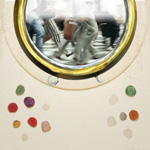 The very things I do so willingly in real life cripple me when they’re part of an assignment. While in this incapacitated state the very structure of my brain changes and I am suddenly filled with a sense of euphoric wonderment in the most mundane things. Everything becomes fascinating because fascination is a relative thing. This is why people are able to read the March 1983 edition of Highlights Magazine when they’re in the dentist office (a decent issue, don’t misunderstand).
The very things I do so willingly in real life cripple me when they’re part of an assignment. While in this incapacitated state the very structure of my brain changes and I am suddenly filled with a sense of euphoric wonderment in the most mundane things. Everything becomes fascinating because fascination is a relative thing. This is why people are able to read the March 1983 edition of Highlights Magazine when they’re in the dentist office (a decent issue, don’t misunderstand). My friend, whom I hate, just had his second book optioned, a fact that haunts me because “The Killness” is not a good book. And it’s not as good as his first book which, though it was spectacularly bad, was also optioned.
My friend, whom I hate, just had his second book optioned, a fact that haunts me because “The Killness” is not a good book. And it’s not as good as his first book which, though it was spectacularly bad, was also optioned. I noticed the car only because of the fancy sign propped up just behind its windshield, which was fogged like a cataract. The sign, intricately decorated with macaroni and glass beads, read, “Finally For Sale, $4,000,” like people had been waiting for it all this time. The sign was far more eye-catching than the subject of advertisement, itself a nondescript American make whose paint was of some elusive color between beige and gray. The U.S. does still craft nondescript cars, though the heyday of these little charmers was in the mid-seventies. Many of them didn’t live long enough to see the beginning of the eighties. These were cars made without flourish, lacking entirely any kind of stylistic nicety. And a $4,000 asking price was far too much to hope for.
I noticed the car only because of the fancy sign propped up just behind its windshield, which was fogged like a cataract. The sign, intricately decorated with macaroni and glass beads, read, “Finally For Sale, $4,000,” like people had been waiting for it all this time. The sign was far more eye-catching than the subject of advertisement, itself a nondescript American make whose paint was of some elusive color between beige and gray. The U.S. does still craft nondescript cars, though the heyday of these little charmers was in the mid-seventies. Many of them didn’t live long enough to see the beginning of the eighties. These were cars made without flourish, lacking entirely any kind of stylistic nicety. And a $4,000 asking price was far too much to hope for.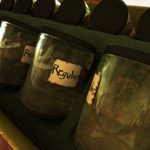 The neighborhood where I grew up lay on the border between the old quarter and the new. The natives to the land were descendants of those left behind in the frontier days, themselves too unfit physically, socially, or mentally to make the trip westward. The late twentieth century had seen the rise of suburban sprawl and expensive homes, and with that came the lawyers and politicians willing to pay any price to live outside the nearest city. The divide between the old and new was a constant source of fascination for me, especially as tensions flared. On weekends I could hear them both from my bedroom window. To my left the bucolic rhythms of jaunty jug bands and the synchronized slap of bare feet on floorboards echoed into the night, and the morning brought fire and brimstone sermons and wails of repentance. To my right the antiseptic strains of classical music accompanied barbecue gatherings that spiced the air until dusk, and the morning brought the chatter of televisions to keep families safe from conversation and lawsuits.
The neighborhood where I grew up lay on the border between the old quarter and the new. The natives to the land were descendants of those left behind in the frontier days, themselves too unfit physically, socially, or mentally to make the trip westward. The late twentieth century had seen the rise of suburban sprawl and expensive homes, and with that came the lawyers and politicians willing to pay any price to live outside the nearest city. The divide between the old and new was a constant source of fascination for me, especially as tensions flared. On weekends I could hear them both from my bedroom window. To my left the bucolic rhythms of jaunty jug bands and the synchronized slap of bare feet on floorboards echoed into the night, and the morning brought fire and brimstone sermons and wails of repentance. To my right the antiseptic strains of classical music accompanied barbecue gatherings that spiced the air until dusk, and the morning brought the chatter of televisions to keep families safe from conversation and lawsuits.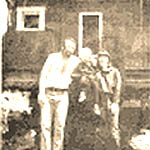 The City seems impersonal more often than not, particularly when I compare it to the intimacy of the household I grew up in. Over the holiday, in the ebb of the din, I found myself with some spare moments during which to reflect on the way things were: three generations packed into a caravan, surviving the summer’s heat in our threadbare underclothes, ripe as an open can of meat.
The City seems impersonal more often than not, particularly when I compare it to the intimacy of the household I grew up in. Over the holiday, in the ebb of the din, I found myself with some spare moments during which to reflect on the way things were: three generations packed into a caravan, surviving the summer’s heat in our threadbare underclothes, ripe as an open can of meat.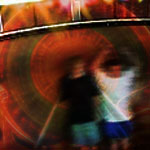 Mexico was a traumatic experience when I was a kid. With my brother I traveled to the Yucatan in 1982, where our uncle guided us strategically away from pesky familiarity of tourist traps and civilization, and toward the less trafficked areas replete with local color. A socially stunted thirteen year old, I would have found a trip to a new Radio Shack almost seizure-inducingly overwhelming. Not used to being out in the sun, my skin had a eerie computer club paleness. I was lanky, and wore my white tube socks pulled up to my knees. I was foreign to this world, and it rejected me like some incompatible transplant. Especially in Mexico.
Mexico was a traumatic experience when I was a kid. With my brother I traveled to the Yucatan in 1982, where our uncle guided us strategically away from pesky familiarity of tourist traps and civilization, and toward the less trafficked areas replete with local color. A socially stunted thirteen year old, I would have found a trip to a new Radio Shack almost seizure-inducingly overwhelming. Not used to being out in the sun, my skin had a eerie computer club paleness. I was lanky, and wore my white tube socks pulled up to my knees. I was foreign to this world, and it rejected me like some incompatible transplant. Especially in Mexico.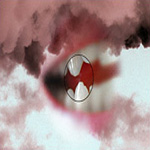 Dear Diary,
Dear Diary,